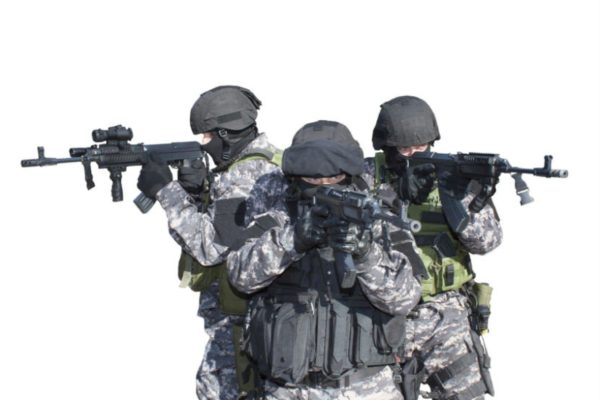Seventy years ago, Democratic President Harry S. Truman signed into law the National Security Act passed by a Republican Congress. No legislation in U.S. history more fundamentally altered the way security policy is made and executed. It established the Department of Defense, the Air Force as a separate service, the National Security Council and the Central Intelligence Agency, and it gave permanent standing to the Joint Chiefs of Staff.
Bipartisan alliances capable of prioritizing national security spending and enacting meaningful legislation are as vital now as ever. We must demand leaders who can distinguish between fights over social issues or other partisan differences and protecting Americans.
Calling for bipartisanship in today’s political environment may seem like asking pigs to fly. We should not, however, recall 1947 as “the good old days” when the president and Congress could easily overcome partisan divides to pass important legislation, nor should we think bipartisanship is impossible today.
Resistance to parts of the 1947 act was strong. For example, although we built a massive air armada to win the World War II, and the British, Soviets and Germans entered the war with separate Air Forces, entrenched interests seriously threatened the creation of a separate U.S. air service.
Although the National Security Act laid a strong and enduring foundation, it was also a set of compromises that did not go far enough in a number of areas. Subsequent Congresses had to build on this foundation for decades.
The act was so weak regarding management of the new Defense Department that it had to be significantly amended in 1949, and Congress did not mandate the structure and processes necessary for a unified defense establishment until passage of the Goldwater-Nichols Act in 1986. The Russians, French and British had a long history of intelligence services, while the most powerful nation on the planet had none. Though the act established the CIA, the authorities granted for managing the intelligence community were toothless — a shortcoming not addressed until after the failures of Sept. 11, 2001.
When there are gaps in governmental capabilities or structure that only legislation can close, only Congress can close them. The executive branch does not need constant legislative tinkering or micromanagement, but effective national security policy requires a Congress that can do more than emote righteous indignation after problems are revealed.
Take the security of our physical and digital infrastructure. Congress has passed legislation in these areas, but what actions would Congress take after a cyberattack succeeded in cutting power to millions of Americans and caused the death of hundreds or thousands? What would it do if terrorists engineered a major and lethal leak of chemicals? You don’t have to be a Hollywood scriptwriter to envision these scenarios, and it’s obvious to the average American that congressional action before the fact narrows the gap between preparation and catastrophe.
Although the historical record shows that Congress is unlikely to do what is needed on national security issues until AFTER a disastrous “teachable moment,” outrage over Russian meddling is proving that it’s not impossible.
In defiance of President’s Donald Trumps wishes, the Republican-led Congress has decided not to wait until Russia or another foreign power has altered or nullified the outcome of an American election before acting. The sanctions bill alone won’t solve the problem, but the strong bipartisan support for it sends an important signal concerning our resolve to protect democratic values.
No matter the political affiliation, we all should help restore an ethos in which politics are pushed aside when American lives or values are in jeopardy. Concerned Americans need to ask whether their representatives in Congress can shift from hard-fighting partisans on political issues to bipartisan statesmen on national security. We need to reward those who can with our financial support and votes. We need to shame and vote against those who cannot. They endanger us.
J. Paul Pope is a clinical professor in the LBJ School of Public Affairs and a senior fellow in the Intelligence Studies Project at The University of Texas at Austin. He served in the U.S. Army and the Central Intelligence Agency for 45 years.
A version of this op-ed appeared in Fortune, East Bay Times, Waco Tribune Herald, McAllen Monitor, and Psychology Today.
To view more op-eds from Texas Perspectives, click here.
Like us on Facebook.




